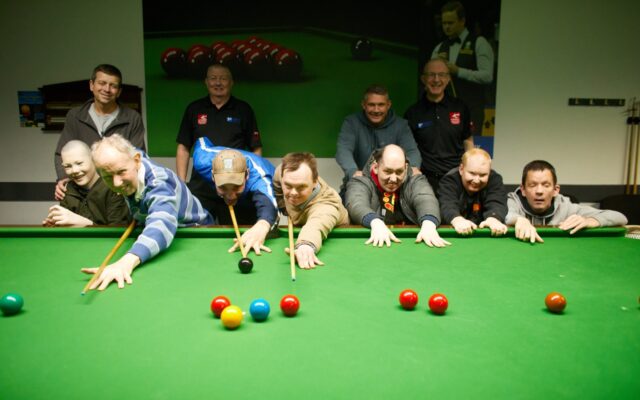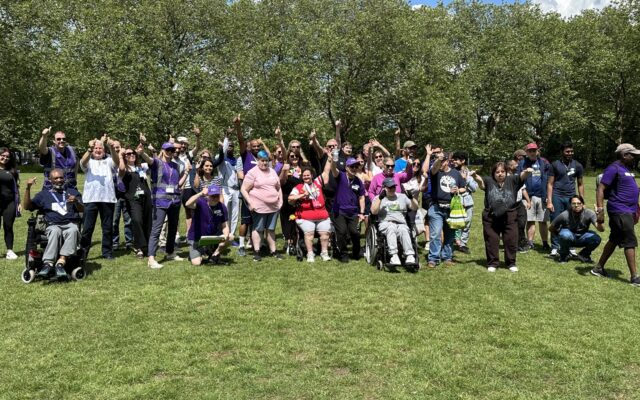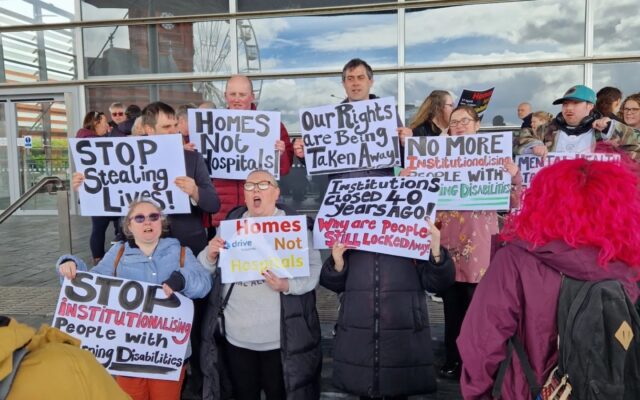Activist Simone Aspis reports on a campaign with two aims – to stop people being locked up in assessment and treatment units purely because they are disabled and to make friends with those detained in institutions
Thirty months ago, I was repeatedly contacted by an inpatient in an assessment and treatment unit (ATU) , who asked me to be her advocate – on the basis that I am disabled and campaign for disabled people’s rights.
‘Oh crikey,’ I thought, ‘What do I know about the mental health system, the law and how it all works?’ I knew nothing, other than watching a few of these dreadful programmes exposing the horrible abuse that goes on in such institutions.
Since then, it has been a roller-coaster ride, dealing with mainly the downs of the mental health system while trying to arm myself with the legislation and policies to advocate for patients’ release from these institutions.
I received help from WISH, a voice for women’s mental health, where a lovely and supportive disabled advocate who was also a qualified independent mental health advocate (IMHA), helped me with some of the challenges of dealing with the system.
Getting involved in the anti-ATU online community, I realised the level of disempowerment many inpatients’ experience despite having a legal entitlement to independent mental health and capacity advocates.
Inpatients, including one who was 15 years old, asked for advocacy support, which could be anything from attending meetings to arranging care and treatment reviews and community care assessments.
Hands tied
There is an issue about mental health advocacy services themselves. IMHAs and other hospital-based services are commissioned by the hospitals and therefore questions have been asked about their independence. Sometimes the advocate’s hands are tied by ward staff who can be interfering and ignore their points, which defeats the point of advocacy.
Advocacy needs to be more structured, and made easier for advocates to support patients, and without having to go through ward staff who may be the subject of the patient’s complaints or feedback.
IMHA advocates often do not have the necessary skills and training to work with and understand the communication needs of autistic patients and those with learning difficulties.
One person I met said: ‘Often I have found that IMHAs have no training in autism and therefore cannot relate and are unable to fully understand my point of view.
‘For example, when requesting for reasonable adjustments to be made during ward rounds, I wanted the information in a written format from the doctor before we met and I wanted time to ask questions and ensure I fully understood what was being communicated – this request wasn’t fully understood and supported by either the doctor or the IMHA. It transpired that this was because I was perceived as not requiring this communication adjustment.’
The Free Our People Now campaign is led by people with disabilities. Its aim is to get disabled people, particularly those with learning difficulties and autism, out of psychiatric hospitals and ATUs, while campaigning for their closure.
The campaign has two aims. The first is to work strategically to prevent thousands of people from being locked up in institutions as a result the of government’s attack on our inclusion in society. We want to do this by campaigning for an overhaul of mental health and capacity legislation so that it is compatible with the UN Convention on the Rights of Persons with Disabilities. The ultimate aim is that disabled people can no longer be detained solely on the grounds of disability, which is the case with both the Mental Health and Mental Capacity Acts.
Second, we will inform our strategy by making friends in institutions, an approach adopted 30 years ago by the disabled people’s independent living movement.
Through my advocacy work, I am gaining first-hand experience of what needs to change at a strategic level, such as laws that allow our peers to be locked up in these institutions with no regard for their human rights.
Peer treasure
The campaign is based on the successful rights campaigns of the 1970s when many disabled people lived in large institutions with no control over their lives. Peer support was at the centre of much of this work.
One former ATU patient comments on the value of peer advocacy: ‘The biggest advantage is that the person can fully relate to the person they are supporting as they share the same or similar condition. This cannot be overestimated.’
‘So many times in hospital people would say, ‘I know how you feel’ and this really isn’t true unless you’ve been in the same or similar position, which most had not.’
Peer support can also be empowering – when you can’t see any light at the end of the tunnel, a peer is sometimes the very person you need to remind you that you can do it and you can make it.
There are disabled people including ATU survivors who would like to go into institutions and advocate for their fellow peers. Many of them, including myself, want to have training and be part of a supportive community. We need your help – we need money to bring disabled people together and get the training and support we need to help us Free Our People Now.
For more information, contact Simone Aspis at simone@changingperspectives.org.uk
To donate, go to www.justgiving.com/campaign/free-our-people-now
www.simoneaspis.co.uk
Simone Aspis is a disabled person acting as an advocate for detained inpatients with learning difficulties and autism who want to be released from psychiatric hospitals. She has more than 20 years’ experience campaigning for disabled people’s human and civil rights, working for People First, the United Kingdom Disabled People’s Council, the Alliance for Inclusive Education and Not Dead Yet.




